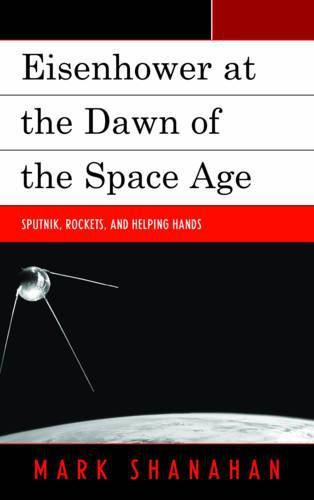Readings Newsletter
Become a Readings Member to make your shopping experience even easier.
Sign in or sign up for free!
You’re not far away from qualifying for FREE standard shipping within Australia
You’ve qualified for FREE standard shipping within Australia
The cart is loading…






Historians have established a norm whereby President Eisenhower’s actions in relation to the dawn of the space age are judged solely as a response to the Soviet launch of the Sputnik satellite, and are indicative of a passive, negative presidency. His low-key actions are seen merely as a prelude to the US triumph in space which is largely bookended first by President Kennedy’s man-to-the-moon pledge in 1961, and finally by Neil Armstrong’s moon landing eight years later. This book presents an alternative view of the development of space policy during Eisenhower’s administration, assessing the hypothesis that his space policy was not a reaction to the heavily-propagandized Soviet satellite launches, or even the effect they caused in the US political and military elites, but the continuation of a strategic journey. This study engages with three distinct but converging strands of literature and proposes a revised interpretation of Eisenhower’s actions in relation to rockets, missiles and satellites: namely that Eisenhower was operating on a parallel path to the established norm that started with the Bikini Atoll Castle H-bomb tests; developed through the CIA’s reconnaissance efforts and was distilled in the Aeronautics and Space Act of 1958 which set a policy for US involvement in outer space that matched Eisenhower’s desire for a balanced budget and fundamental belief in maintaining peace. President Eisenhower was not interested in joining a space race : while national security underpinned his thinking, his space policy actions were strategic steps that actively sidestepped internecine armed forces rivalry, and provided a logical next step for both civilian and military space programs at the completion of the International Geophysical Year. In reassessing the United States’ first space policy, the book adds to the revisionism under way in relation to the Eisenhower presidency, focusing on the Helping Hands that enabled him to wage peace.
$9.00 standard shipping within Australia
FREE standard shipping within Australia for orders over $100.00
Express & International shipping calculated at checkout
Historians have established a norm whereby President Eisenhower’s actions in relation to the dawn of the space age are judged solely as a response to the Soviet launch of the Sputnik satellite, and are indicative of a passive, negative presidency. His low-key actions are seen merely as a prelude to the US triumph in space which is largely bookended first by President Kennedy’s man-to-the-moon pledge in 1961, and finally by Neil Armstrong’s moon landing eight years later. This book presents an alternative view of the development of space policy during Eisenhower’s administration, assessing the hypothesis that his space policy was not a reaction to the heavily-propagandized Soviet satellite launches, or even the effect they caused in the US political and military elites, but the continuation of a strategic journey. This study engages with three distinct but converging strands of literature and proposes a revised interpretation of Eisenhower’s actions in relation to rockets, missiles and satellites: namely that Eisenhower was operating on a parallel path to the established norm that started with the Bikini Atoll Castle H-bomb tests; developed through the CIA’s reconnaissance efforts and was distilled in the Aeronautics and Space Act of 1958 which set a policy for US involvement in outer space that matched Eisenhower’s desire for a balanced budget and fundamental belief in maintaining peace. President Eisenhower was not interested in joining a space race : while national security underpinned his thinking, his space policy actions were strategic steps that actively sidestepped internecine armed forces rivalry, and provided a logical next step for both civilian and military space programs at the completion of the International Geophysical Year. In reassessing the United States’ first space policy, the book adds to the revisionism under way in relation to the Eisenhower presidency, focusing on the Helping Hands that enabled him to wage peace.